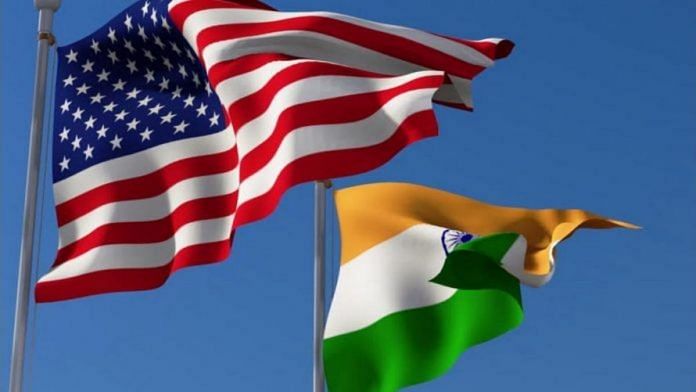New Delhi: The Donald Trump administration extended support to India during the border standoff with China under the US push for its Indo-Pacific strategy to check Beijing’s influence, a new White House document revealed Wednesday.
India has been engaged in one of its toughest border standoffs with China since April-May last year in the Ladakh sector of the Line of Actual Control, and also lost 20 soldiers in a violent clash in the Galwan valley in June 2020.
According to the declassified document on the Indo-Pacific strategy of the US, India plays an important role in the policy, which aims to maintain America’s “strategic primacy” in the region, thereby checking China’s “influence” but “solidifying an enduring strategic partnership with India”.
It revealed that one of the main objectives of the Trump administration was to “accelerate India’s rise and capacity to serve as a net provider of security and Major Defense Partner”.
Under this strategy, the report said, the US will “offer support to India — through diplomatic, military and intelligence channels — to help address continental challenges such as the border dispute with China and access to water, including the Brahmaputra and other rivers facing diversion by China”.
Also read: Pangong Tso opens for tourists amid Ladakh stand-off. This is how you can visit it
Support to India
Under Donald Trump, the US also sought to extend its support to India’s ‘Act East’ policy and New Delhi’s endeavour to be a “leading global power, highlighting its compatibility with the US, Japanese and Australian vision of a free and open Indo-Pacific”, said the report.
In 2020, after 13 years, Australia, India, Japan and the US — the Quad grouping — jointly held the Malabar naval exercise.
The report underlined that the US will need to build a “stronger foundation for defense cooperation and interoperability; expand our defense trade and ability to transfer defense technology to enhance India’ status as ‘Major Defence Partner’; increase our cooperation on shared regional security concerns”.
It added that the US will also support India’s membership in Nuclear Suppliers’ Group and an increased leadership role in the East Asia Summit and ADMM+ (ASEAN Defence Ministers Meeting).
The report also noted that under the US’ Indo-Pacific initiative, America will “build regional support for US-India Common Principles in the Indian Ocean, including unimpeded commerce, transparent infrastructure-debt practices and peaceful resolution of territorial disputes”.
According to the declassified document, the US will also work with India and Japan “to help finance projects that enhance regional connectivity between India and countries of the region”.
India and Japan are building a container terminal in Colombo Port in Sri Lanka under the $500 million deal.
“Establish and gain broad consensus on a statement of principles on acceptable maritime behaviour, to include a commitment to regional cooperation in line with shared security objectives,” it said.
Also read: US unveils plan to counter China’s rise from India to Taiwan




The June 15, 2020 clash between India and China is fittingly in-line with a famous saying, “Imprudence is a moral failing of sorts, but alas it ranks low as a dreamtime concern”. That morality has little role to play in the scheme of global politics is one of the reasons why states resort to taking actions that border irrationality and recklessness. Those dangerous forays sprout from a desire to achieve grandiose goals. India is no exception, and thus, looks to achieve goals through a mosaic of coercive strategies . It has shown the tendency to reshape the contours of the region by challenging the status quo. Ostensibly, India’s behavior can be ascribed to a permissive environment, provided by the United States, to counter the rise of China.